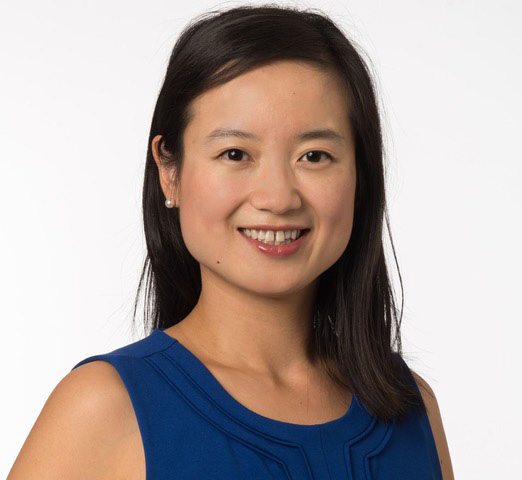Scientists awarded more than $5 M from health research funding agency
Scientists at Sunnybrook Research Institute (SRI) had a strong showing in the autumn 2019 Project Grant competition held by the Canadian Institutes of Health Research (CIHR). With an approval rate of 20 per cent, SRI faculty pulled in nine grants, for a total investment of nearly $5.7 million in the funding round.
“Congratulations to the scientists on their success,” says Dr. Kullervo Hynynen, vice-president of research and innovation at SRI and Sunnybrook. “These awards speak to their excellence and dedication. With this investment from CIHR, our scientists and their teams can focus on what they do best: doing transformative research.”
Dr. Barbara Haas, a scientist in Evaluative Clinical Sciences, and Dr. Avery Nathens, director of the Tory Trauma Research Program, are co-principal investigators of a project that seeks to improve the long-range recovery of people who have had severe injuries that require hospitalization. They will receive $459,000 over four years to identify the lasting outcomes that are most important to trauma patients. They will also develop practical strategies to collect this information. Haas says the team is “excited” to embark on this work. “If we can help trauma centres implement strategies to collect information about long-term outcomes among their patients, we will have the opportunity to directly impact the lives of millions of injury survivors,” she says.
Dr. Anne Martel, a senior scientist in Physical Sciences, was awarded $925,650 over five years. She and Dr. Jennifer Brooks, an assistant professor in the Dalla Lana School of Public Health at the University of Toronto, are co-principal investigators on a project that aims to develop better models for predicting breast cancer risk using artificial intelligence. The team includes experts in breast imaging, medical oncology, biostatistics and epidemiology.
Using the data of women with a high risk of breast cancer that have had annual MRI and mammography tests, the researchers will develop new machine learning models to assess who is likely to get the disease. These models will be tested using image data from the Ontario Breast Screening Program and a similar program from the U.K. “This is a great opportunity to apply cutting-edge artificial intelligence techniques to a unique clinical dataset in order to improve breast cancer screening,” says Martel. “A more accurate assessment of breast cancer risk will enable screening protocols to be adapted to the needs of individual women. It would also allow women to make more informed decisions about preventive therapies based on their personalized risk of breast cancer.”
Dr. Amy Yu, an associate scientist in Evaluative Clinical Sciences, was awarded the largest grant at SRI. She, along with co-principal investigator Dr. Moira Kapral, an affiliate scientist in Evaluative Clinical Sciences, will receive $1,325,008 over four years. She is leading a team that will collect data from all hospitals in Ontario to understand the care of people who have had a stroke. The goal is to provide information that will inform the implementation of endovascular thrombectomy (a clot removal procedure), and improve stroke care and outcomes of patients.
Other SRI scientists granted funding in the competition are as follows:
- Dr. Isabelle Aubert, a senior scientist in Biological Sciences, was awarded $940,950 over five years for research on gene therapy for Alzheimer’s disease.
- Dr. Marc Jeschke, a senior scientist in Biological Sciences, will receive $857,565 over five years. He will study how burn injuries induce a state of hypermetabolism via browning of white fat tissue.
- Dr. Bob Kerbel, a senior scientist in Biological Sciences, was awarded $581,400 over four years. He will look at the use of low-dose chemotherapy given over a long period as a way of countering resistance to a type of immunotherapy, which unleashes the immune system to fight cancer.
- Dr. Krista Lanctôt and co-principal investigator, Dr. Nathan Herrmann, were awarded a one-year grant worth $100,000. Their team will examine a therapy that combines exercise and transcranial direct current stimulation to improve cognition.
- Dr. Farhad Pirouzmand, an affiliate scientist in Biological Sciences, will receive $378,673 over three years. He, along with co-principal investigators Dr. Damon Scales, a scientist in Evaluative Clinical Sciences, and Dr. Alireza Mansouri, a neurosurgeon at Penn State Hershey Medical Center, are leading a pilot clinical trial to assess the feasibility of a type of brain tumour removal surgery. Their proposal ranked first out of 40 applications by the committee that reviewed it.
- Dr. Richard Swartz, a scientist in Evaluative Clinical Sciences, and co-principal investigator Dr. Jodi Edwards, a scientist at the University of Ottawa Heart Institute, were awarded a one-year grant worth $100,000. They are leading a team that is developing a screening tool for depression, sleep apnea and cognitive problems in people with heart failure.
In total, CIHR received 2,183 grant applications, of which 459 were funded, for a national average success rate of 21 per cent.
In a nutshell
- The Canadian Institutes of Health Research awarded scientists at Sunnybrook Research Institute (SRI) $5.7 million for nine project grants in the funding agency’s autumn 2019 competition.
- The investment will enable basic science, preclinical studies, imaging investigations, clinical studies and health services research.
- These approaches aim to advance knowledge and transform care of cancer, Alzheimer’s disease and stroke, among other conditions.



